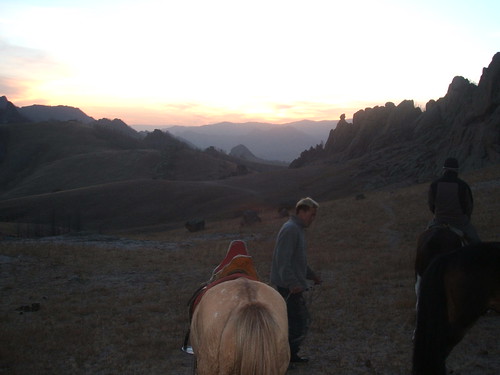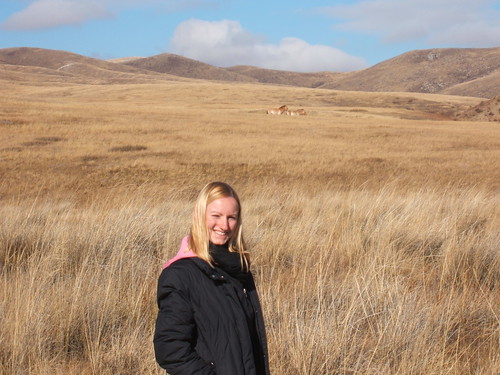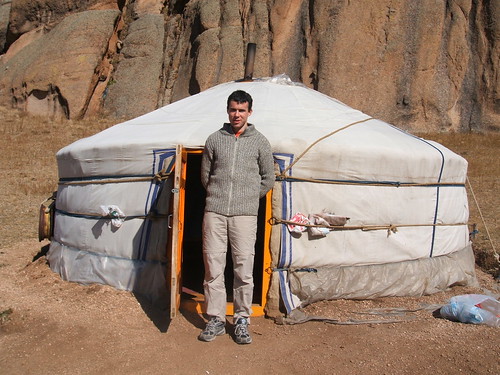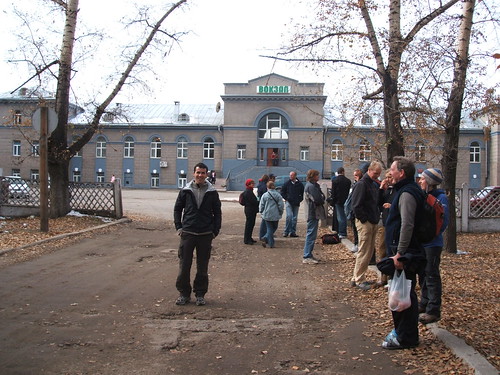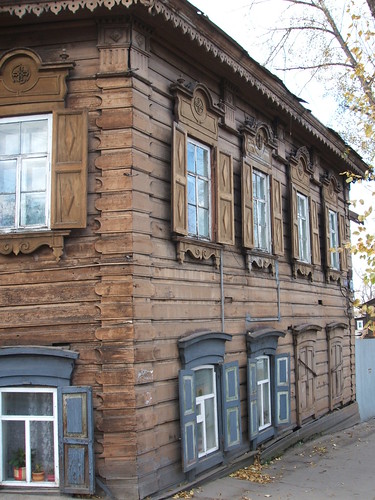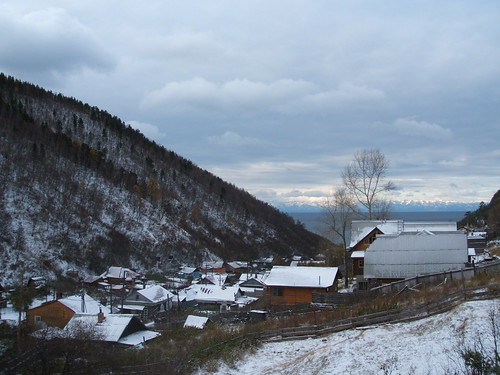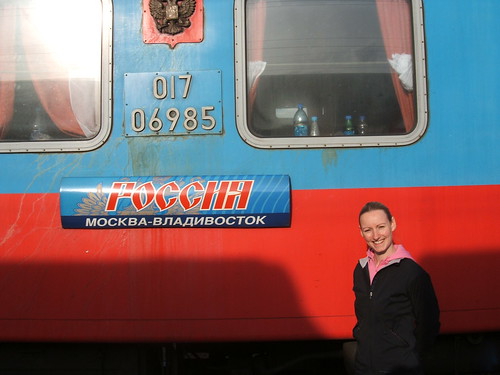Beijing, China
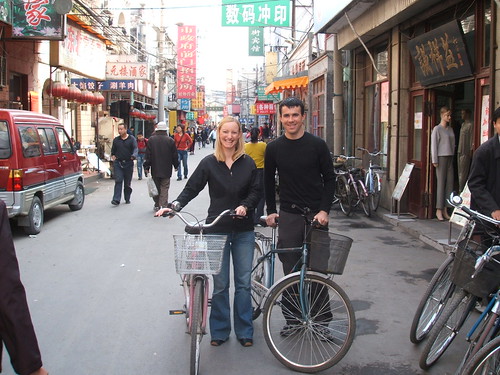 Monday to Thursday, 16 - 19 October 2006
Monday to Thursday, 16 - 19 October 2006We stay at the Leo Hostel which is on a market street near Tiananmen Square. It's a full-on sensory experience: lined with neon lights, kitsch shops (with loadspeakers blaring Chinese pop music and mantra-like special offers), pungent food stalls and piles of people, cyclists, rickshaws and cars, all noisily trying to muscle their way through, with the pedestrians coming out the worse for wear mostly. Inspired by Katie Melua's masterpiece "Nine Million Bicycles in Beijing", we decide to take a step up the food chain and rent out bicycles to tour the city. Beijing is a wealthy city, the showpiece of the People's Republic of China. There is alot of construction going on and it is obvious that the city is being given a face-lift before the 2008 Olympics.
Tiananmen Square is not much more than a big square but it attracts thousands of mostly Chinese tourists, many of whom come to visit Mao's Mausoleum. Having already seen one waxy Communist corpse (Lenin), we give this a skip. We look forward to the tour of the Forbidden City (home to 24 Chinese emperors), not least because we have been told that Roger Moore narrates the audiocassette walking tour. Things have moved on since the last print run of the guidebooks, as a lady with a Chinese/American twang has replaced 007. Maybe he fell foul of the old rule that, as a man, you had to be a eunuch if you wanted to enter the Forbidden City. The current entry fee of Eur 6 is pretty reasonable by comparison. The Forbidden City is a labyrinth of palaces with loopy names like "The Palace of Earthly Harmony, Peaceful Equilibrium and Tight Buns". Our favourite spot in Beijing though was the Summer Palace, the summer retreat of the imperial court, which is a bit outside of the city and has beautiful gardens overlooking a lake.
Leo Hostel offe
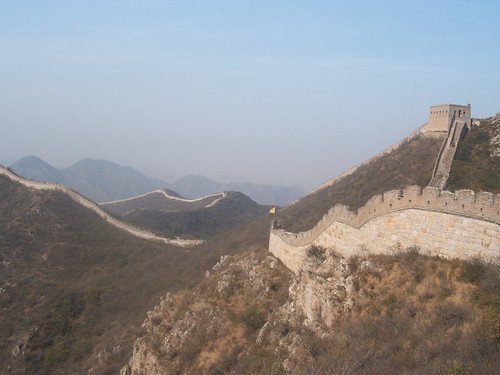 rs a tour to the "Secret Wall", a bit of the Great Wall which is less tourist-ridden. We sign-up for this and spot the name "Paudi O'Se" on the list of people going. Sure enough, our minibus is almost 100% Kerrygold. The stretch of the Great Wall we visit is off the beaten track. It is less well-maintained than the popular spots and alot of the steps are in rubble making the climb precarious in spots. The views from the watchtowers are spectacular though and you can imagine frostbitten Chinese soldiers looking nervously out over the ranges below for their nasty neighbours, the Mongols.
rs a tour to the "Secret Wall", a bit of the Great Wall which is less tourist-ridden. We sign-up for this and spot the name "Paudi O'Se" on the list of people going. Sure enough, our minibus is almost 100% Kerrygold. The stretch of the Great Wall we visit is off the beaten track. It is less well-maintained than the popular spots and alot of the steps are in rubble making the climb precarious in spots. The views from the watchtowers are spectacular though and you can imagine frostbitten Chinese soldiers looking nervously out over the ranges below for their nasty neighbours, the Mongols.One of the nights, we take the plunge and go to the Donghuamen Yeshi night market to sample a bit of the local cuisine. It's a 500 yard stretch of food stalls offering such treats as deep-fried scorpions and millipedes. The vendors shout all sorts of things to grab your attention: "hello", "you like squid", "real snake" and "I love you". As our VHI policy doesn't cover extreme sports, we avoid eating the creepy crawlies. With full bellies, we decide to take a rickshaw home. Our driver is a heavily-built fellow who heads off in the wrong direction up a hill and huffs and puffs until a scrawny guy who has been circling around nearby offers to take one of us to lighten the load. Our suspicions are aroused and we ask how much this will cost. We are told "three yuan" (about 30 cents) but take this to mean thirty yuan (3 Euro). We should really have called a halt to things when they take a diversion into a hutong, a maze of old alleyways and slums. They start pointing at bits of rubble and saying "old house". Finally they mutter something to each other and stop in a dark street nowhere near the hostel. They demand 3oo yuan for the 10-minute trip. We insist on 30. They produce a laminated card with a price list on it, including 300 yuan for a "Forbidden City Tour". Not only did we not see this before; we went nowhere near the Forbidden City. We have been scammed and refuse to pay. They block our path, light-up cigarettes and the stand-off goes on for a while. We manage to negotiate down to 150 yuan but have learnt to be a little less trusting of the very smiley rickshaw drivers.
For more photos of Beijing click here.
